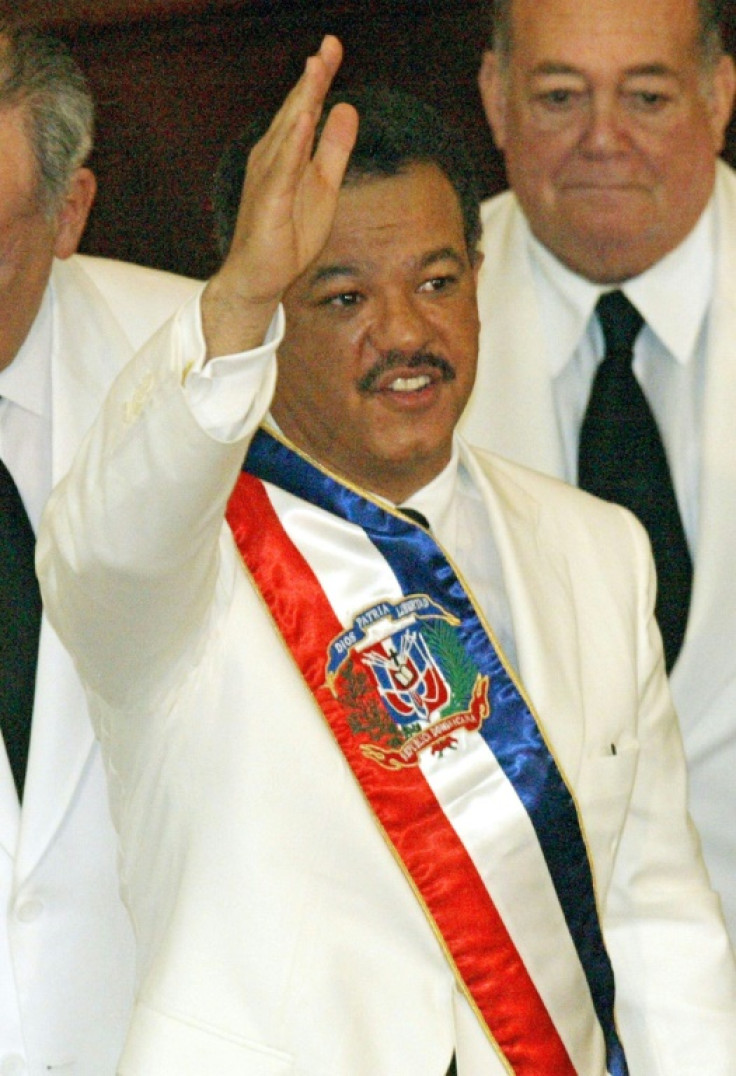
Dominican President Luis Abinader is poised for a comfortable re-election on Sunday, analysts say, buoyed by support for his tough stance on migration from troubled neighboring Haiti.
The two nations share the Caribbean island of Hispaniola, but the more prosperous Dominican Republic stands in stark contrast to its chaos-plagued neighbor, which has been rocked by months of gang violence.
The volatility across the border has been a key issue in the election campaign, but Abinader also boasts success in managing the economy and the Covid-19 pandemic.
"He is heading towards a comfortable re-election," Dominican political scientist Rosario Espinal told AFP.
"He has known how to take measures that would add support for his re-election: subsidies, increased employment, the issue of Haitian migration."
The 56-year-old millionaire businessman Abinader was elected amid the Covid pandemic in 2020, promising to restore trust in the government after several high-profile corruption scandals embroiling public officials.
In office, he began building a 164-kilometer (100-mile) concrete wall along the 380-kilometer border with Haiti to keep out undocumented migrants.
He also had more than 250,000 migrants deported in 2023.
His followers call him the "crisis president" and the latest Gallup opinion poll showed 60 percent of voters plan to back him.
Abinader's main rival is former president Leonel Fernandez, 70, who was in office between 1996 and 2000, and again for two terms between 2008 and 2012.
The lawyer and writer has offered up over 2,000 proposals to transform the economy for a "government of progress", and the Gallup poll shows 25 percent of voters intend to support him.
The capital Santo Domingo and smaller provincial towns are plastered with political posters, and Abinader and Fernandez have criss-crossed the country holding rallies with hundreds chanting slogans and dancing Dominican merengue.
The migration issue has not been a divisive one in the election, with even the opposition backing the deportation of Haitian migrants and increased border security.
"We have the right to do so," said Fernandez during an election debate, criticizing international pressure to take in Haitian refugees.
"We will keep deporting those who are illegal," said Abinader.
The Gallup poll showed that 47.5 percent of Dominicans believe the country is "on the right path" and 40 percent believe the economy is doing better than before.
"Stabilizing a country is not that easy and putting it to work correctly is not that easy either. That takes time," Genry Perez, a 30-year-old transporter, told AFP.
"That's why the population wants to give Abinader a chance."
Fernandez has accused Abinader's government of manipulating growth data. The World Bank reports that the Dominican Republic economy grew 2.5 percent in 2023.
On his side, Abinader has said that voting for Fernandez would mean a return to corruption.
Opinion polls also show that Abinader's Modern Revolutionary Party is bound for a majority in Congress.
The party won 120 of 150 mayor's posts in February municipal elections, considered a litmus test ahead of the general vote.
More than eight million people are registered to vote when polls open at 7am local time on Sunday (1100GMT). Results are due that same evening.









